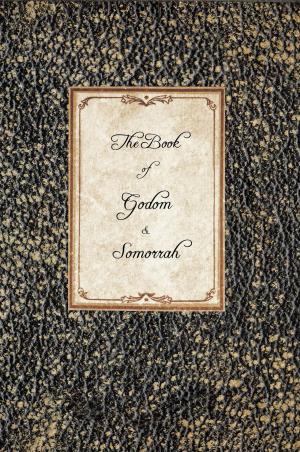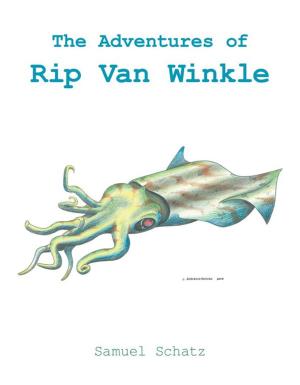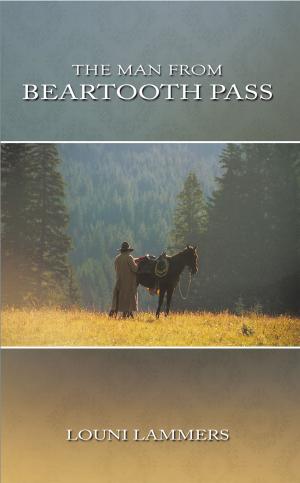| Author: | Bernice Berger Miller | ISBN: | 9781546222460 |
| Publisher: | AuthorHouse | Publication: | March 5, 2018 |
| Imprint: | AuthorHouse | Language: | English |
| Author: | Bernice Berger Miller |
| ISBN: | 9781546222460 |
| Publisher: | AuthorHouse |
| Publication: | March 5, 2018 |
| Imprint: | AuthorHouse |
| Language: | English |
Sixteen-year-old Juri arrived alone at Ellis Island from Russia. His father sent him for a temporary period, eager for his son to escape the coming war in 1914. Juri, no different from the many other immigrants, spoke no English. All he had was a brown bag that contained a few pictures and a change of clothes. He also had himself. In his jacket pocket was a folded piece of paper with the scrawled name and address of a cousin living in Connecticut. Maybe it wasnt a cousin at all. But the name on the paper gave him a sense of grounding. A name gives all things an identification. And to a person, a name gives an identity. Juri rarely followed anyones instructions but his own. From an early age, he exercised his independence, which usually put him at odds with those around him. It was a trait that was strong in the generations before him. History or not, independence made him comfortable. Notwithstanding this trait, Juri followed the instructions scrawled on the piece of paper in his pocket. He knocked on the door of the family in Connecticut, and that was where he started his America journey. It took him from Connecticut to Paterson, New Jersey, where he drove a bakery truck and found two loves: a textile mill and the beautiful auburn-haired Sadie Cohn. To gain approval to marry Sadie, the oldest daughter of Adolph and Anna Cohn, he promised to work in the Cohns clothing store. Adolph Cohn, an immigrant himself but of a much longer standing, was the first to introduce him to the derogatory term green horn. Juri, whose name had already been arbitrarily changed to Joseph at Ellis Island, started his textile manufacturing company when he left the store job. He knew that he did not break his promise to Mr. Cohn about working there. He had said he would work there, but he never said for how long. This green horn, never one to bother about such insignificant slights, took his wife and newborn daughter and moved on. Remaining true to himself, he moved his textile business from Paterson until the labor union there threatened to make decisions for him. That was anathema to him. As he moved his business and little family many times, building his character and his Joseph Berger reputation, he reached out to the only family he knewSadies many sisters. They became the fodder he needed to develop his own family that was to replace the Russian family he thought he had lost. His name, Joseph Berger, signifying his strong and independent character, journeyed many miles and many years to surface wonderfully, like the sun emerging from behind a cloud. And the way it surfaced was, indeed, wonderful.
Sixteen-year-old Juri arrived alone at Ellis Island from Russia. His father sent him for a temporary period, eager for his son to escape the coming war in 1914. Juri, no different from the many other immigrants, spoke no English. All he had was a brown bag that contained a few pictures and a change of clothes. He also had himself. In his jacket pocket was a folded piece of paper with the scrawled name and address of a cousin living in Connecticut. Maybe it wasnt a cousin at all. But the name on the paper gave him a sense of grounding. A name gives all things an identification. And to a person, a name gives an identity. Juri rarely followed anyones instructions but his own. From an early age, he exercised his independence, which usually put him at odds with those around him. It was a trait that was strong in the generations before him. History or not, independence made him comfortable. Notwithstanding this trait, Juri followed the instructions scrawled on the piece of paper in his pocket. He knocked on the door of the family in Connecticut, and that was where he started his America journey. It took him from Connecticut to Paterson, New Jersey, where he drove a bakery truck and found two loves: a textile mill and the beautiful auburn-haired Sadie Cohn. To gain approval to marry Sadie, the oldest daughter of Adolph and Anna Cohn, he promised to work in the Cohns clothing store. Adolph Cohn, an immigrant himself but of a much longer standing, was the first to introduce him to the derogatory term green horn. Juri, whose name had already been arbitrarily changed to Joseph at Ellis Island, started his textile manufacturing company when he left the store job. He knew that he did not break his promise to Mr. Cohn about working there. He had said he would work there, but he never said for how long. This green horn, never one to bother about such insignificant slights, took his wife and newborn daughter and moved on. Remaining true to himself, he moved his textile business from Paterson until the labor union there threatened to make decisions for him. That was anathema to him. As he moved his business and little family many times, building his character and his Joseph Berger reputation, he reached out to the only family he knewSadies many sisters. They became the fodder he needed to develop his own family that was to replace the Russian family he thought he had lost. His name, Joseph Berger, signifying his strong and independent character, journeyed many miles and many years to surface wonderfully, like the sun emerging from behind a cloud. And the way it surfaced was, indeed, wonderful.















